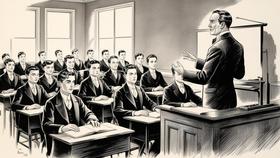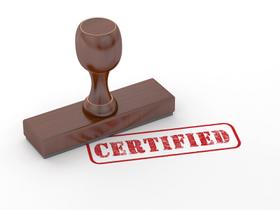If you about to graduate from college or have graduated recently, and are thinking about going into teaching, you will find it worthwhile to consider one of the intern programs which many private schools offer. The reason why private schools offer teaching internships is that they want to shape their future teachers to teach in the way they want them to teach. Each private school is a free-standing, independent school with its own approach to teaching and its own curriculum. While it is always beneficial to hire an experienced teacher, the school still has to adapt that teacher to the school's way of doing things.
Teaching in a private school also is not simply about teaching in the classroom. Teaching in a private school requires you to be involved in extracurricular activities and athletics as well. Teaching in a private school means that you are teaching the whole child. These intern teacher programs which you will explore offer the opportunity to do all that and to learn how teaching in a private school really works. An internship typically has a light teaching load and is mentored constantly. The possibilities for some serious learning about and understanding of teaching abound. This short video shows Exeter's choir and orchestra getting ready for a concert. Just think! If you are a musician, you could be involved with this kind of extracurricular activity.
Yes, many private schools have teacher intern programs. And, no, they are paid positions with health benefits. Positions in a boarding school usually offer housing as well. Now that we have those two pressing questions out of the way, let's explore what's involved with private school teacher intern programs.
Who is eligible?
Recent college graduates are what most independent schools are looking for. The appointments usually are for one year and are full-time positions. Schools look for young men and women who have a degree in a specific subject area who are passionate about their subject. Schools also look for individuals can make a meaningful contribution to the life of the school through their participation in the extracurricular activities and sports programs which the school offers. Here is a look at some of the programs Deerfield Academy offers.
What's involved?
Relax! You will not be thrown off the deep end. You will get to teach under the watchful eye of a mentor assigned to you. If you are in a boarding school - most internships seem to be at boarding schools, for whatever reasons - you will also be assigned a dorm in which to live where you will act as a residential adviser or counselor. A permanent member of staff will have overall responsibility for the dormitory in which you will be living. You will also be expected to coach a sport or perhaps supervise an extracurricular activity. You will actually learn what is involved with being a private school teacher.
Here is how The Hotchkiss School describes its Teaching Fellows Program:
"The Hotchkiss Teaching Fellows Program is a two-year program designed to provide exceptionally promising young teachers an introduction to a career in education in a highly supportive environment. Designed for those who are new to teaching or have limited experience as teachers, the Teaching Fellows Program combines in-depth teaching and residential life experience, collaborative learning opportunities with fellows from other boarding schools, and University of Pennsylvania graduate coursework.
Hotchkiss Fellows teach and are actively involved in all aspects of the School’s programs both as residential advisors in the dormitories and as coaches for two seasons (or the equivalent). Fellows will work closely with Hotchkiss mentors in their academic disciplines and other aspects of school life. A bachelor’s degree in the academic area in which the intern will teach (or a closely related subject) is required. Experience as a tutor, teaching assistant, student teacher, etc. is desirable, but not necessary."
"Hotchkiss typically hires four Teaching Fellows (for each two-year cycle) for a position in most of our academic departments—Visual and Performing Arts, English, History and Social Science, Mathematics, Classical and Modern Languages, and Science—and occasionally in non-academic departments including the Library, Admission and Athletic Offices."
Why go this route?
The most compelling reason has to be the reality that you will get to teach the subject you love to young people who want to learn. Better yet, because of the strict codes of honor independent schools have in place you won't have to worry about dealing with a class full of unruly teens. They want to excel just like you did. Another advantage to interning in an independent school is that the classes are small. 12-15 students is the norm. That means you can cover a lot of ground. Indeed that will be expected. All the while you are receiving feedback from your mentor.
How do you apply?
Most intern openings are highly competitive. The application process varies from school to school. Don't leave anything to chance if you are serious about applying for an internship. Work with a trusted adviser to hone your interview skills. The more you can offer in the way of sports, especially sports other than the mainstream ones, or activities such as chess, drama, forensics, etc., the better. This video explains how small class size impacts your teaching. To put things in perspective, this should be one of the reasons you put in your application for wanting to be a private school teacher. Small class sizes are the norm in private schools.
The actual mechanics of applying usually entail a cover letter, a resume, letters of recommendation (usually three) and your academic transcripts. Have a trusted adviser review your cover letter and resume. They must be flawless and presented professionally.
When do you apply?
Again, the applications procedure varies from school to school. Typically the deadlines will be at the end of the calendar year. Decisions are made and announced within a few months. Be sure to check the employment section of school web sites for full details about any intern or teaching fellowship programs offered. As a rule you should check the employment section of a school's web site after January for the following academic year's openings.
Where will an internship lead?
Hopefully the internship will lead to graduate work or to an appointment at another independent school. A successful internship enhances your resume and helps strengthen your network. Schools look for individuals who think of teaching as a vocation. The Andover Teaching Fellow Program is an example of this approach. You will spend a year beginning to learn your craft as a teacher under the watchful eyes of experienced professionals. Then, depending on how you do, you will move on to another school.
"During a teaching fellow year, the recent college graduate is introduced to teaching in a program of guided work in the classroom, a professional seminar, and exposure to theories and methods of experienced faculty. To enable the teaching fellow to explore the range of opportunities in a large, diverse boarding community and to contribute to school life in keeping with personal interests and the school’s needs, teaching fellows teach fewer hours than regular faculty members."
I recommend that you approach finding an internship in the same way parents set out to find a school for their children. Review the Employment Section on as many private school web sites as you care to. See what is available. Determine if the positions sound like a fit for your requirements. Then apply. Be sure to follow the application instructions to the letter.
Progressive Education Lab
The PEL program consists of a training year and an internship year. If you have graduated within the last three years and seek to work in a small, well-mentored teacher training program, PEL might just be the right option for you. PEL currently has four schools involved in this initiative which is supported by a generous grant from the Edward E. Ford Foundation. The Calhoun School, The Cambridge School of Weston, The Putney School, and The Unquowa School participate in PEL.
Questions? You can contact me on Twitter. @privateschl





















